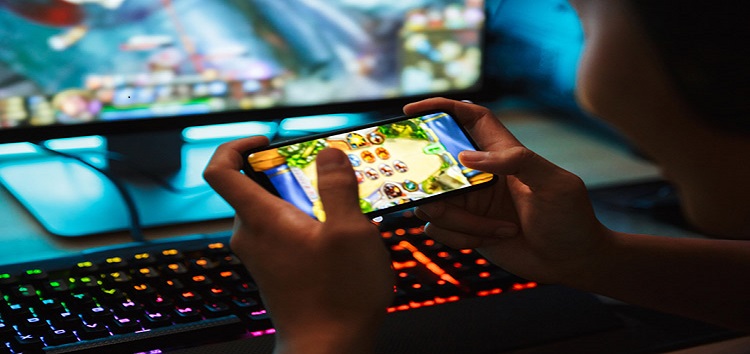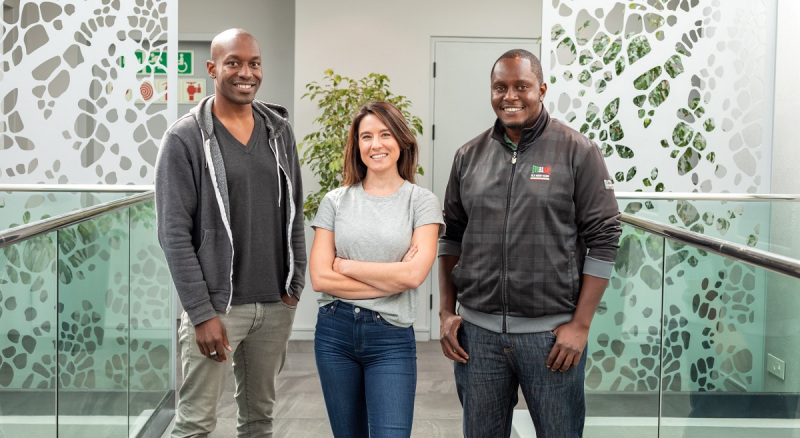Video game development is one industry that isn’t noticed enough in Africa. Its growth has been tedious, significantly impacted by the fragmented and unresolved distribution ecosystems on the continent.
In a chat with Technext, Cordel Robbin-Coker, the Carry1st CEO and co-founder explained that developers in the space often found it hard to create games that have global appeal.
“There is a real need to introduce Africa-inspired content to the world, but a lack of pathways for local talent to become professional game developers who can develop compelling mobile gaming experiences.”
Cordel Robbin-Coker, the Carry1st CEO and co-founder
He added that this typically makes them hit a low ceiling early on because they can’t make enough money to grow. However, that’s about to change.


A dedicated game development hub
Carry1st, an Africa-focused mobile games publishing platform has teamed up with CrazyLab to launch a hypercasual gaming accelerator programme, “CrazyHubs Cape Town” in South Africa.
According to Cordel, the new hub will help African developers learn how to design and develop global standard hypercasual mobile games.
The programme will also help develop Africa’s burgeoning mobile gaming ecosystem and showcase African ideas, culture, and creativity to a global audience.
Accelerators like CrazyHubs Cape Town will enable us to identify and train local gaming talent in order to develop the next big hypercasual mobile game, and to showcase African ideas, culture and creativity to a global audience.
Cordel Robbin-Coker, the Carry1st CEO and co-founder
Game development in Africa
There are different genres of game development, from hypercasual mobile games to mid-and-hard-core adventure and action games.
Carry1st CEO says that the first focus for the CrazyHub Cape Town will be on hypercasual games. He explained that the rapidity with which these games can be developed helps promote the rate of learning and evolution that will onramp local talent into the games industry more generally.
Hypercasual is a genre of mobile games that has seen unprecedented growth in the last few years.
Sagi Schliesser, CrazyLabs CEO
CrazyLabs CEO, Sagi Schliesser agrees. He says the games are quick to develop and test, which democratize the ability for aspiring game developers to create hits. Sagi added that it can be operated profitably for 18 to 36 months after launch.
Some examples of hypergames that have been successful in Africa include, Broforce, developed by Cape Town-based independent studio Free Lives; Mosquito Smasher, Okada Rider and Aboki Run by Nigerian-based Maliyo Games; and Nairobi X developed by Kenyan Andrew Kaggia.
According to Cordel, these games are examples of titles that were able to produce strong local and international demand for African gaming content.
Broforce sold over 1 million copies while still in development and, grossed $3 million in sales within six months of its initial release on PC and Mac.


Although the current focus is on hypercasual games, Carry1st CEO says the company is also pursuing partnerships with international studios that will provide the opportunity for local developer teams across the gaming spectrum – from hypercasual mobile games to adventure and action games.
Lagos, Nairobi or Cairo might be next
The newly-launched incubator in South Africa is one of the first accelerators dedicated to game creation in Africa. It comes off the back of hugely successful programmes across the world including India, Israel, Poland, Serbia and Turkey.
Lucy Hoffman, COO at Carry1st says the programme will be the first of many that the partnership launch in Africa.
Cordel confirmed this. According to him, the company has started thinking about bringing it to more cities like Lagos, Nairobi, Cairo across the continent.
How the accelerator works
CrazyHubs Cape Town will be a 3-6 month paid accelerator in Cape Town. It will be coordinated by renowned industry experts who will teach the next generation of gaming talents the fundamentals of designing and developing hypercasual mobile games.
The Hub will select up to 10 teams of 2 – 3 individuals. But if people do not have a team, the Hub may match them with other individuals with complementary skills.
Carry1st CEO explained that the team will likely be composed of a designer and up to two developers, one of which should be familiar with Unity, the leading game development engine.
Hypercasual games are lightweight, free-to-play games with simple mechanics, making them instantly playable and highly engaging.
Participants will receive world-class training in hypercasual games development, including hands-on guidance.
Alongside mentorship, participants will also have the potential opportunity to launch their incubated games on global platforms such as the App Store and Google Play Store.
The participants will also receive a profit share plan for any successful games developed within the program time period. And each team member will receive a monthly stipend, with graduates receiving a ‘CrazyHubs Diploma’ certificate.
Application to the programme is currently open. The accelerator will be starting in September 2021 and will last a minimum of three months.
Submitted applications will be reviewed throughout July and August, and finalists will be announced at the end of August.


How to apply – requirements
The Crazyhub is looking for the next generation of African gaming talents and will be welcoming aspiring game programmers, developers, designers, artists, game development studios, gaming school graduates and young people in the field of game development across the whole of Africa.
In terms of skills required, Cordel says the hub is relatively open mind to the backgrounds that could bring compelling gaming experiences to the fore.
He explained that the current approach is to look for talented teams that can work together.
Other requirements on the applications page include, an age requirement of 18 and above, interest in hyper-casual mobile game development and a game portfolio
Applying teams must also have 1 Unity developer and an English speaker.
To interested participants, Carry1st CEO advised that only those with determination, creativity, and a willingness to work hard will likely be the most successful in the Hub – developing and launching their own games.
In summary
The mobile gaming industry is still nascent. It has taken time for talented individuals to understand and appreciate the value of forging a career in the games industry.
Together with CrazyLabs, Carry1st is invested in attracting the next generation of developers and impacting them with the skills, resources, and network to reach millions of users continent-wide and globally.






